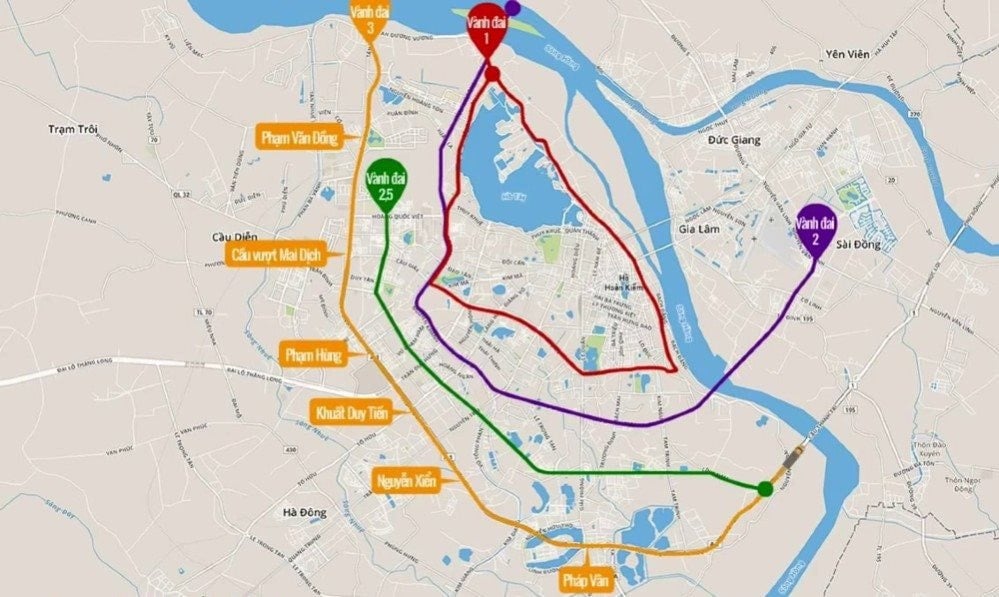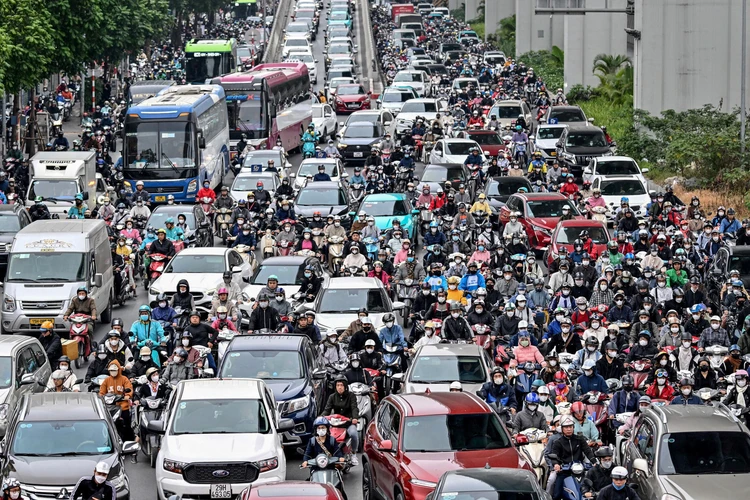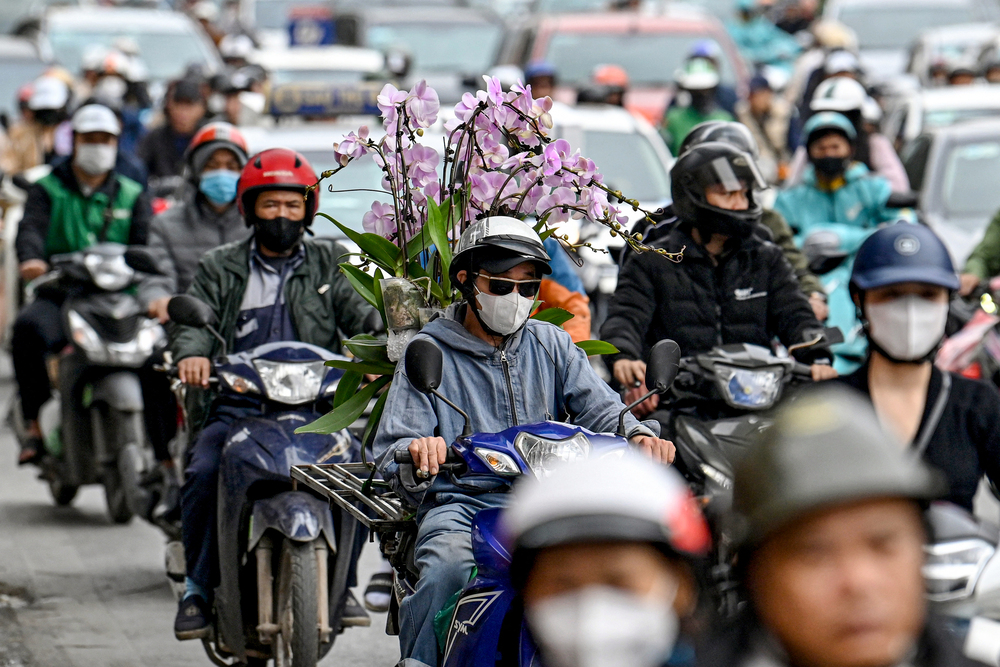News out of Vietnam’s capital this week – Hanoi has been ordered to ban gas-powered motorbikes in its city center by 1 July 2026 in a bid to cut transport emissions and target the city’s pollution crisis.
Directive No. 20, issued by Prime Minister Pham Minh Chinh on July 12, requires Hanoi to completely ban fossil fuel-powered motorcycles within the boundaries of Ring Road 1 by mid-2026, and to fast-track work on low-emission zones in the third quarter of 2025.
From 1 January 2028, those restrictions will be expanded to both Ring Roads 1 and 2, with implementation along Ring Road 3 to follow – though a date for the latter has not yet been set.

It comes as the Ministry of Transport announced an ambitious target late last year to shift 30 per cent of cars and 22 per cent of motorbikes to electric power by 2030.
Local media reports suggest Ho Chi Minh City’s Department of Construction is now considering similar proposals to restrict gasoline-powered vehicles.
Here’s everything you need to know about the latest out of Hanoi.
Pollution Capital: Why are we here?
Reports from UNICEF indicate that as at 2019, approximately 70,000 deaths annually in Vietnam could be attributed to air pollution.
Hanoi made headlines worldwide when it briefly ranked as the world’s most polluted city in the world on 3 January 2025 by independent air quality monitoring agency IQAir, with levels of hazardous small particles known as PM2.5 clocking in at 266 micrograms per cubic meter.
For Hanoi locals, it’s a story built of concrete. The smog smothering the country’s capital reveals a story of major infrastructure-driven development, in part enabling Vietnam’s 5-8 per cent gross domestic product growth across the past three consecutive years from 2022.
The situation is so severe and widespread that Directive No. 20 now explicitly re-aligns the problem of environmental protection as an inseparable pillar of the country’s socioeconomic development strategy.

Implementing the ban: What does it mean?
There are mixed reactions among residents as to the feasibility of the timeline and implementation.
While local media reports the majority of citizens support proposals to limit gasoline and diesel-powered vehicles to reduce emissions and protect the environment, the reality of Vietnam’s working and middle class make-up is that many won’t have the financial capacity to switch to cleaner alternative vehicles. Complicating the situation is data from Hanoi’s Department of Transport to suggest 73 per cent of vehicles are used for more than 10 years.
For a city which operates on more than 6.9 million motorbikes, implementation will need to occur incrementally and in stages.
Guidance outlined in Directive No. 20 provides preliminary insight into how the ban might be implemented.
These include feasibility studies on the potential for increases to registration fees, license plates for motor vehicles and specialized motorbikes, and fossil-fuel vehicle parking fees in the central Hanoi area to disincentivise gas and diesel-powered usage.

More broadly, the People’s Committee of Hanoi will be expected to develop and announce work on low-emission zones in the coming three months, with separate public awareness-raising campaigns to follow. That means significant investment in developing a roadmap to 2030 for the greening of Hanoi’s multi-modal public transport network, with a view to prioritizing the use of electric buses and trains.
Increased supply and availability of electric vehicle charging infrastructure has also been outlined, with fiscal and policy support for businesses manufacturing and assembling clean energy vehicles and infrastructure on the table.
What’s next?
The Hanoi directive is a signal the Vietnamese government wants to shift towards translating ambition into action when it comes to tackling environmental issues in the fast-developing country.
Broader than the gas-powered motorbike ban are provisions alluding to stronger law enforcement actions on environmental-related cases, and plans to pilot a ban on disposal plastic items in central Hanoi to address waste concerns.
Those in the business capital of Ho Chi Minh City can expect to see similar proposals to restrict high-emissions vehicles soon, with local reports citing a 15 July deadline across all agencies for the submission of similar proposals.
Experts say action to control transportation emissions thus far has been “cautious but effective” – whether implementation will be successful remains to be seen.
